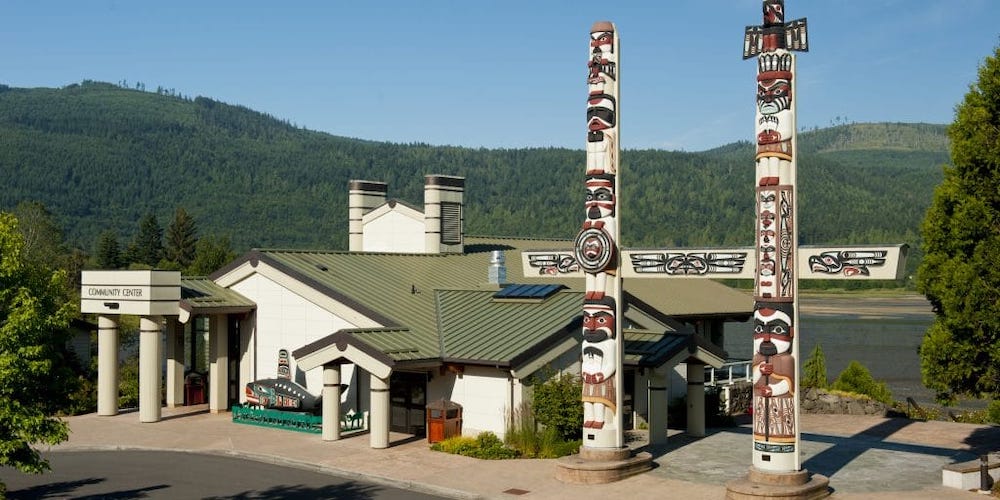
- Details
- By Chez Oxendine
The Department of the Interior announced a new wave of more than $120 million in funding for tribal climate resilience projects ranging from infrastructure reinforcement to relocation efforts.
The money will support 146 projects across 102 tribal communities and nine tribal organizations. It is the largest investment under the Tribal Climate Awards Program, a competitive grant program aimed at building tribal climate resilience, since that program’s inception in 2011. This year’s funding more than doubles the $110 million distributed over the last 13 years.
“Indigenous communities are facing unique and intensifying climate-related challenges that pose an existential threat to tribal economies, infrastructure, lives and livelihoods,” Interior Secretary Deb Haaland said during a Wednesday press call. “Through President Biden’s Investing in America agenda, we are making transformational commitments to assist tribes and tribal organizations as they plan for and implement climate resilience measures, upholding our trust and treaty responsibilities and safeguarding these places for generations to come.”
Supported projects fell broadly into two applications: adaptation and relocation. Awards ranged from around $98,000 for studying climate impacts on the Port Madison Reservation in Washington, to just over $9.8 million for fortifying and restoring a watershed on the Lummi Reservation.
During the press call, agency officials responded to questions about the smaller award amounts and would be enough to help tribes address the climate challenges.
An agency official, speaking on background, said the funding was part of a to pre-empt what would eventually be a colossal need in Indian Country should climate change continue unabated.
“We know the need overall is likely to be in the billions if climate change isn’t stopped,” the official said. “But some tribes are facing climate problems right now.”
That includes an array of Alaska Native villages that received lower award amounts — between $89,000 and $150,000 — to help fund relocation, managed retreat, and protect-in-place coordination projects. Other relocation projects commanded awards of around $3 to $4 million, such as a housing project for the Hoh Indian Tribe in Washington.
During Wednesday’s press call, the senior official told reporters that the department felt these amounts were enough to get tribes moving on plans or relocation efforts. Above all, the official said that each relocating tribe remained in charge of their eventual destination and process.
“We are working with several tribal communities on that very issue and the important thing is to make sure they're the ones driving that bus,” the official said. “The effort is to remain in safer homelands. In Quinault for example, that means the Quinault Indian Nation is moving their community from the Quinault river mouth up several hundred feet of elevation, about a mile away. They're the ones driving it. We're supporting them.”
White House Senior Advisor to the President and Director of Intergovernmental Affairs Tom Perez called the funding “unprecedented” as part of the Biden-Harris administration’s push toward improving climate resilience across the country.
“The most severe impacts of climate change fall disproportionately on communities that are least able to prepare for and recover from them,” Perez said during the press call. “The Biden-Harris Administration is making unprecedented investments to ensure Tribal communities have the resources to develop effective community-driven climate resilience strategies.”
More Stories Like This
Southern Sierra Miwuk Nation Gets 900-Acres ofLand BackChilkat Indian Village Tells New Palmer Mine Owners They Are “Not Welcome” in Chilkat Valley
Tribes, Coastal Group Ask Army Corps to Revoke Permit for Texas Export Terminal
Michigan Tribes Tell Supreme Court: Don’t Bail Out Enbridge
Alaskans Raise More Than $1 Million For Communities Devastated by Typhoon Halong
Help us defend tribal sovereignty.
At Native News Online, our mission is rooted in telling the stories that strengthen sovereignty and uplift Indigenous voices — not just at year’s end, but every single day.
Because of your generosity last year, we were able to keep our reporters on the ground in tribal communities, at national gatherings and in the halls of Congress — covering the issues that matter most to Indian Country: sovereignty, culture, education, health and economic opportunity.
That support sustained us through a tough year in 2025. Now, as we look to the year ahead, we need your help right now to ensure warrior journalism remains strong — reporting that defends tribal sovereignty, amplifies Native truth, and holds power accountable.
 The stakes couldn't be higher. Your support keeps Native voices heard, Native stories told and Native sovereignty defended.
The stakes couldn't be higher. Your support keeps Native voices heard, Native stories told and Native sovereignty defended.
Stand with Warrior Journalism today.
Levi Rickert (Potawatomi), Editor & Publisher


